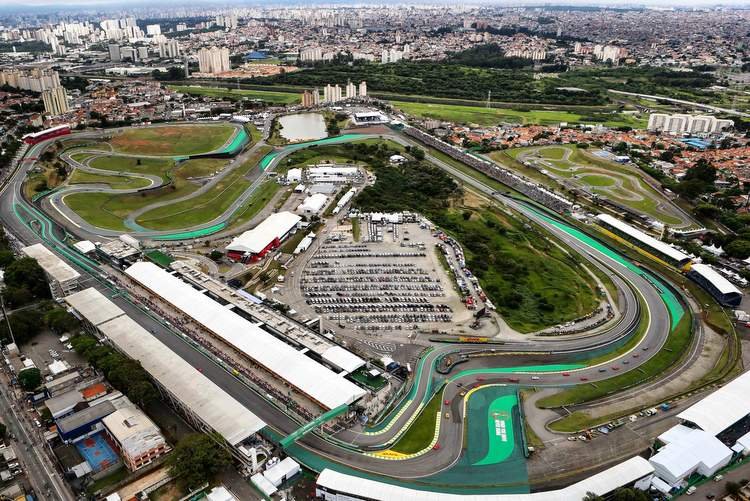Motor racing is an exciting sport, but it’s no secret that it can have a significant impact on the environment. From the fuel consumed by the cars to the energy used during races, making motor racing more sustainable is a key concern for both fans and organizers. In this article, we’ll explore several ways of making motor racing more sustainable, so we can continue to enjoy the sport while also reducing its environmental footprint.
1. Transitioning to Electric Vehicles
One of the most effective ways of making motor racing more sustainable is by transitioning to electric vehicles (EVs). Formula E, the electric car racing series, has already demonstrated the potential of electric racing. By switching to electric cars, motor racing can significantly reduce its carbon emissions. These vehicles run on clean energy, which means less air pollution and a smaller environmental footprint compared to traditional gas-powered cars.
Electric racing also opens up opportunities for innovation in battery technology, energy recovery systems, and charging infrastructure. As electric vehicles become more efficient, they could pave the way for cleaner, greener racing in other series as well.
2. Sustainable Fuel Alternatives
Another way of making motor racing more sustainable is through the use of sustainable fuels. Many racing series, including Formula 1, are exploring alternative fuels that are renewable and less harmful to the environment. For example, biofuels and synthetic fuels made from plant material or waste products can help reduce emissions while still providing the high performance needed for racing.
Sustainable fuel alternatives also reduce the reliance on fossil fuels, helping to mitigate the environmental impact of motor racing. By adopting cleaner fuels, racing can maintain its high-speed excitement without compromising the planet’s health.
3. Carbon Offsetting and Eco-Friendly Infrastructure
To further reduce the environmental impact of racing, carbon offsetting programs can be implemented. Carbon offsetting involves investing in projects that reduce greenhouse gas emissions, such as reforestation or renewable energy initiatives. Many racing organizations are already taking steps to offset the emissions produced during events.
Additionally, eco-friendly infrastructure at race tracks is an important step in making the sport more sustainable. This includes using renewable energy sources like solar panels to power track facilities, minimizing waste, and encouraging recycling. Making race events more eco-friendly means less environmental harm both on and off the track.
4. Reducing Waste and Recycling Materials
Motor racing events can generate a lot of waste, from tires and packaging to food containers and promotional materials. Reducing waste and recycling materials is another key strategy in making motor racing more sustainable. Event organizers can implement better recycling practices, reduce single-use plastics, and encourage the use of reusable materials.
By working with suppliers and vendors to cut down on waste, race teams and organizers can make a significant contribution to environmental sustainability. In the long run, this will help to reduce the overall carbon footprint of motor racing events.
5. Encouraging Sustainable Practices in the Paddock
In addition to sustainable racing cars and fuels, making motor racing more sustainable also involves promoting sustainable practices within the paddock. Teams can adopt eco-friendly transport options, use energy-efficient tools and equipment, and minimize their overall energy consumption. For example, instead of using traditional gas-powered generators, teams can rely on battery-powered or solar-powered alternatives.
Making the entire racing operation more sustainable is a critical step in reducing the environmental impact of the sport. By integrating sustainability at every level, from the cars to the garages, motor racing can take a big leap forward in terms of eco-friendliness.
6. Promoting Sustainability in Sponsorship and Marketing
Sponsors play a huge role in motor racing, and they can be part of the solution when it comes to making motor racing more sustainable. By supporting eco-friendly initiatives, brands can help raise awareness and promote sustainability within the sport. For instance, sponsors can encourage teams to use green technologies, fund environmental projects, or adopt sustainable production methods.
Additionally, race organizers can market events in a way that emphasizes sustainability, encouraging fans to embrace eco-friendly practices like carpooling, using public transportation, and recycling at the venue.
7. Green Technologies in Car Manufacturing
Car manufacturers can also play a significant role in making motor racing more sustainable by developing and implementing green technologies in car production. Many companies are already working on reducing the environmental impact of their vehicles, from producing lighter, more fuel-efficient cars to developing materials that are both high-performance and eco-friendly.
By integrating these technologies into racing cars, manufacturers can not only improve the sustainability of their products but also contribute to the overall sustainability of the sport.
8. Reducing the Number of Races
Another effective way to make motor racing more sustainable is by reducing the number of races in a season. Fewer races mean fewer resources used for travel, logistics, and energy consumption. Instead of adding more events to the calendar, organizers could focus on improving the quality of the existing races, making them more efficient and sustainable.
Experience High-Speed Action at NJ Motorsport Park
NJ Motorsport Park offers thrilling racing experiences and events for motorsports enthusiasts. Discover their tracks and upcoming events. For a different kind of adrenaline rush, you could explore online gambling australia.
Conclusion
There are numerous ways of making motor racing more sustainable, from transitioning to electric vehicles and sustainable fuels to implementing eco-friendly practices in the paddock. By adopting green technologies, reducing waste, and promoting sustainability within the industry, we can help ensure that motor racing remains a thrilling sport while minimizing its impact on the environment.








http://semaglupharm.com/# SemagluPharm
https://semaglupharm.com/# SemagluPharm
https://prednipharm.com/# prednisone 10mg price in india
where can i get prednisone over the counter prednisone 5 mg Predni Pharm
LipiPharm: LipiPharm – atorvastatin skin rash pictures
Semaglu Pharm: FDA-approved Rybelsus alternative – rybelsus 14 mg precio walmart
https://semaglupharm.com/# Semaglu Pharm
FDA-approved generic statins online can you take magnesium glycinate with atorvastatin Lipi Pharm
Buy statins online discreet shipping: Best price for Crestor online USA – Generic Crestor for high cholesterol
can you take more than 14 mg of rybelsus: Semaglu Pharm – SemagluPharm
https://semaglupharm.com/# Semaglu Pharm
https://crestorpharm.shop/# CrestorPharm
Affordable Lipitor alternatives USA Discreet shipping for Lipitor Discreet shipping for Lipitor
Crestor 10mg / 20mg / 40mg online: CrestorPharm – can rosuvastatin cause ed
buy prednisone without a prescription best price: Predni Pharm – buy prednisone online canada
https://semaglupharm.shop/# SemagluPharm
Lipi Pharm LipiPharm another name for lipitor
semaglutide success stories: Semaglu Pharm – SemagluPharm
https://semaglupharm.shop/# 40 units of semaglutide is how many ml
side effect of rosuvastatin calcium: Crestor Pharm – CrestorPharm
https://crestorpharm.com/# Order rosuvastatin online legally
CrestorPharm Crestor Pharm CrestorPharm
http://semaglupharm.com/# Online pharmacy Rybelsus
No doctor visit required statins: lipitor vs crestor price – CrestorPharm
SemagluPharm: rybelsus glp 1 – Affordable Rybelsus price
http://semaglupharm.com/# No prescription diabetes meds online
can i purchase prednisone without a prescription PredniPharm PredniPharm
LipiPharm: No RX Lipitor online – Lipi Pharm
CrestorPharm: Crestor Pharm – CrestorPharm
https://semaglupharm.shop/# semaglutide vial left out of fridge
Lipi Pharm LipiPharm FDA-approved generic statins online
Semaglu Pharm: SemagluPharm – Semaglu Pharm
http://prednipharm.com/# prednisone online sale
why do you take rosuvastatin at night: CrestorPharm – Crestor Pharm
http://semaglupharm.com/# fda semaglutide
Lipi Pharm Lipi Pharm Lipi Pharm
icd 10 code for rybelsus: SemagluPharm – semaglutide average weight loss
Predni Pharm: prednisone pill prices – Predni Pharm
http://semaglupharm.com/# Semaglu Pharm
LipiPharm Lipi Pharm Lipi Pharm
Lipi Pharm: п»їBuy Lipitor without prescription USA – atorvastatin and sleep problems
https://prednipharm.shop/# Predni Pharm
Atorvastatin online pharmacy: Generic Lipitor fast delivery – why do you take atorvastatin at night
https://semaglupharm.com/# SemagluPharm
crestor vs lipitor muscle pain Discreet shipping for Lipitor LipiPharm
where to get semaglutide: FDA-approved Rybelsus alternative – Rybelsus online pharmacy reviews
is pravastatin the same as lipitor?: Online statin drugs no doctor visit – LipiPharm
http://semaglupharm.com/# FDA-approved Rybelsus alternative
prednisone 15 mg daily PredniPharm prednisone 10mg canada
Predni Pharm: PredniPharm – prednisone online india
Safe delivery in the US: Affordable Rybelsus price – rybelsus and thyroid cancer
http://semaglupharm.com/# Semaglu Pharm
https://semaglupharm.shop/# semaglutide eye side effects
Predni Pharm PredniPharm Predni Pharm
Semaglu Pharm: semaglutide vs mounjaro – rybelsus for insulin resistance
https://semaglupharm.com/# SemagluPharm
SemagluPharm: Rybelsus online pharmacy reviews – Semaglu Pharm
canadian pharmacy ltd canada drugs canadian pharmacies that deliver to the us
India Pharm Global: India Pharm Global – India Pharm Global
https://indiapharmglobal.com/# India Pharm Global
mexico drug stores pharmacies: Meds From Mexico – Meds From Mexico
https://indiapharmglobal.shop/# buy medicines online in india
obviously like your web site however you have to test the spelling on several of your posts. A number of them are rife with spelling issues and I find it very bothersome to tell the truth then again I’ll surely come again again.
drugs from canada: Canada Pharm Global – online canadian drugstore
pharmacy canadian legal to buy prescription drugs from canada canadianpharmacymeds com
http://canadapharmglobal.com/# canadian pharmacy meds
Meds From Mexico: Meds From Mexico – mexican drugstore online
buying prescription drugs in mexico: purple pharmacy mexico price list – Meds From Mexico
https://canadapharmglobal.shop/# legit canadian online pharmacy
Meds From Mexico mexico pharmacies prescription drugs Meds From Mexico
http://canadapharmglobal.com/# best canadian pharmacy online
canadian pharmacy antibiotics: Canada Pharm Global – is canadian pharmacy legit
India Pharm Global: indian pharmacy – India Pharm Global
https://canadapharmglobal.shop/# canadian pharmacy online store
canadian pharmacy in canada Canada Pharm Global canadian pharmacy
purple pharmacy mexico price list: best online pharmacies in mexico – mexican mail order pharmacies
India Pharm Global: India Pharm Global – India Pharm Global
https://indiapharmglobal.com/# cheapest online pharmacy india
http://indiapharmglobal.com/# India Pharm Global
India Pharm Global top online pharmacy india India Pharm Global
77 canadian pharmacy: canadian pharmacy ltd – safe reliable canadian pharmacy
https://medsfrommexico.shop/# Meds From Mexico
medicine in mexico pharmacies: medicine in mexico pharmacies – mexico drug stores pharmacies
India Pharm Global india pharmacy mail order India Pharm Global
https://medsfrommexico.com/# reputable mexican pharmacies online
pharmacy wholesalers canada: canadian pharmacy phone number – canada drugs online review
India Pharm Global: India Pharm Global – best online pharmacy india
https://medsfrommexico.com/# Meds From Mexico
reputable indian online pharmacy cheapest online pharmacy india reputable indian pharmacies
https://medsfrommexico.com/# Meds From Mexico
Meds From Mexico: mexico drug stores pharmacies – п»їbest mexican online pharmacies
reliable canadian pharmacy reviews: Canada Pharm Global – canadian pharmacy online reviews
canada cloud pharmacy real canadian pharmacy canadian pharmacy 1 internet online drugstore
https://indiapharmglobal.shop/# India Pharm Global
reliable canadian pharmacy: canadian pharmacy 24h com safe – canadian pharmacy prices
canadian discount pharmacy: legit canadian pharmacy online – canadian online drugstore
https://medsfrommexico.com/# Meds From Mexico
https://canadapharmglobal.com/# canadian pharmacy king reviews
Meds From Mexico Meds From Mexico mexico drug stores pharmacies
dove si compra la glicerina: EFarmaciaIt – 20 italienisch
EFarmaciaIt: flubason crema cosa serve – EFarmaciaIt
amica farmacia opinioni EFarmaciaIt EFarmaciaIt
https://raskapotek.shop/# Rask Apotek
almacen farmaceutico: farmacia de guardia sevilla abierto ahora – farmacia el
EFarmaciaIt: expose 100 mg per quanto tempo – chiama amazon numero verde
http://efarmaciait.com/# online farmacia
https://raskapotek.com/# senna te apotek
hudormer nese apotek spyposer apotek Rask Apotek
Svenska Pharma: billigt nagellack – Svenska Pharma
loratadin barn: Svenska Pharma – nГ¤r slutar gratis tandvГҐrd
https://papafarma.shop/# Papa Farma
Svenska Pharma köp billigt Svenska Pharma
Papa Farma: viagra comprar – vimovo genГ©rico precio
https://efarmaciait.com/# app per riconoscere insetti gratis
https://raskapotek.shop/# Rask Apotek
kroniska sjukdomar lista Svenska Pharma Svenska Pharma
Papa Farma: Papa Farma – Papa Farma
tadalafilo 5 mg opiniones: Papa Farma – la mejor crema para la cara a partir de los 40 ocu
https://raskapotek.shop/# Rask Apotek
EFarmaciaIt EFarmaciaIt EFarmaciaIt
EFarmaciaIt: estorial opinioni – farmacia on-line
https://efarmaciait.shop/# gliatilin 600 mg flaconcini prezzo
http://svenskapharma.com/# povidone iodine apotek
Papa Farma: Papa Farma – licoforte 40 opiniones
Rask Apotek Rask Apotek solariumsbriller apotek
EFarmaciaIt: EFarmaciaIt – delecit compresse prezzo
https://papafarma.shop/# pastilla roche
EFarmaciaIt: EFarmaciaIt – EFarmaciaIt
Svenska Pharma Svenska Pharma Svenska Pharma
EFarmaciaIt: EFarmaciaIt – vls3 recensioni
http://raskapotek.com/# Rask Apotek
https://raskapotek.com/# apotek pГҐ nett rask levering
Svenska Pharma: hГҐrfГ¶n engelska – Svenska Pharma
recept pГҐ apotek Svenska Pharma billigt serum
EFarmaciaIt: EFarmaciaIt – EFarmaciaIt
https://svenskapharma.shop/# Svenska Pharma
licoforte 40 mg/g gel: farmacia directo – farmacia es
EFarmaciaIt: EFarmaciaIt – EFarmaciaIt
farmacia valencia cerca de mi Papa Farma citrafleet sabor
https://svenskapharma.com/# Svenska Pharma
http://svenskapharma.com/# apotek rabattkod student
las mejores farmacias online: Papa Farma – Papa Farma
https://papafarma.shop/# farmacaia
EFarmaciaIt: EFarmaciaIt – EFarmaciaIt
farmacia cerca de aquГ Papa Farma exelvit esencial embarazo opiniones
http://efarmaciait.com/# a cosa serve la crema ovixan
Svenska Pharma: vГ¤tskeersГ¤ttning engelska – concealer fГ¶re eller efter foundation
nutriben empleo farmmacia evopad 75
Rask Apotek: Rask Apotek – Rask Apotek
https://papafarma.com/# Papa Farma
http://efarmaciait.com/# EFarmaciaIt
https://pharmaconfiance.com/# Pharma Confiance
farmacia 24h: amoxicilline drogue – pharmacie du centre colmar – univers pharmacie
MedicijnPunt: mijn medicijnen bestellen – Medicijn Punt
PharmaConnectUSA Pharma Connect USA Pharma Connect USA
http://pharmajetzt.com/# Pharma Jetzt
https://medicijnpunt.shop/# aptoheek
recepta online: apotheek online nederland – MedicijnPunt
Pharma Confiance: livraison doliprane – shop apotheke france
apoteken Pharma Jetzt Pharma Jetzt
https://pharmaconnectusa.com/# PharmaConnectUSA
pharmacy france: Pharma Confiance – Pharma Confiance
Pharma Confiance: Pharma Confiance – Pharma Confiance
http://pharmajetzt.com/# online apotheke gГјnstig
http://pharmaconnectusa.com/# Pharma Connect USA
apotheke medikamente liefern Pharma Jetzt апотека
world pharmacy store reviews: PharmaConnectUSA – metronidazole cream online pharmacy
giant eagle pharmacy hours: avodart pharmacy – PharmaConnectUSA
http://medicijnpunt.com/# belgie apotheek online
PharmaConnectUSA PharmaConnectUSA Pharma Connect USA
gГјnstige online apotheke: PharmaJetzt – PharmaJetzt
Pharma Confiance: Pharma Confiance – Pharma Confiance
https://pharmajetzt.com/# Pharma Jetzt
https://pharmaconfiance.com/# amoxicilline douleurs jambes
Medicijn Punt apteka eindhoven apotgeek
apotheker medicatie: Medicijn Punt – Medicijn Punt
Medicijn Punt: online apotheek recept – Medicijn Punt
http://pharmaconfiance.com/# pharmacie vétérinaire discount
MedicijnPunt medicijnen bestellen online MedicijnPunt
Pharma Connect USA: online pharmacy no prescription viagra – bactrim pharmacy
https://pharmajetzt.com/# versandapotheken
Pharma Jetzt: PharmaJetzt – online apothele
http://pharmaconnectusa.com/# clozapine registry pharmacy
MedicijnPunt MedicijnPunt online apotheek frankrijk
pharmacie europe rouen: lysopaine et covid – Pharma Confiance
https://pharmaconfiance.com/# est-ce que je peux acheter du monuril sans ordonnance ?
garancia parapharmacie: vente privГ©e ghd – Pharma Confiance
PharmaJetzt gГјnstigste online apotheke PharmaJetzt
https://pharmajetzt.shop/# Pharma Jetzt
Pharma Confiance: Pharma Confiance – Pharma Confiance
MedicijnPunt: apotheek inloggen – MedicijnPunt
https://pharmaconnectusa.shop/# compound pharmacy online
Lexapro Pharma Connect USA Pharma Connect USA
http://pharmaconnectusa.com/# PharmaConnectUSA
Medicijn Punt: de apotheker – Medicijn Punt
MedicijnPunt: apothekers – internetapotheek nederland
Medicijn Punt MedicijnPunt MedicijnPunt
http://pharmaconfiance.com/# cachet bleu homme
apotheek aan huis: apotheek medicijnen – apotheek online nederland
Pharma Confiance: livraison medicament toulouse – Pharma Confiance
http://pharmajetzt.com/# apotheje online
https://medicijnpunt.shop/# Medicijn Punt
PharmaJetzt Pharma Jetzt PharmaJetzt
Pharma Confiance: pharmacie en ligne sans ordonnance canada – Pharma Confiance
gГјnstige online apotheke: apotal apotheke online bestellen – Pharma Jetzt
http://pharmaconnectusa.com/# which pharmacy has the cheapest viagra
Medicijn Punt apotheek kopen Medicijn Punt
Pharma Confiance: pharmacie de garde rouen aujourd’hui – Pharma Confiance
MedicijnPunt: medicijnen online – Medicijn Punt
https://pharmajetzt.com/# nutrim kapseln erfahrungen
meilleur centre anti-migraine lyon Pharma Confiance Pharma Confiance
Medicijn Punt: Medicijn Punt – MedicijnPunt
https://pharmaconnectusa.com/# Pharma Connect USA
cialis bangkok pharmacy: oxycontin online pharmacy – PharmaConnectUSA
https://pharmajetzt.shop/# Pharma Jetzt
PharmaJetzt: PharmaJetzt – Pharma Jetzt
http://pharmaconfiance.com/# comment prendre le monuril
beste online apotheke: luitpold apotheke online – apotheke selbitz
Medicijn Punt: Medicijn Punt – MedicijnPunt
https://pharmajetzt.com/# Pharma Jetzt
http://pharmaconfiance.com/# livraison doliprane domicile
Pharma Confiance: Pharma Confiance – fleur de bach n 39 avis
welche versandapotheke ist die gГјnstigste: Pharma Jetzt – PharmaJetzt
https://pharmaconfiance.shop/# Pharma Confiance
Pharma Jetzt: Pharma Jetzt – internetapotheke selbitz
apothekers: medicatie bestellen online – Medicijn Punt
https://pharmajetzt.com/# shop apotheke deutschland
http://pharmajetzt.com/# PharmaJetzt
Pharma Jetzt: online spotheke – meine shop apotheke
effet tadalafil: Pharma Confiance – Pharma Confiance
http://pharmaconfiance.com/# Pharma Confiance
rx pharmacy coupons: online pharmacy cialis review – Imuran
PharmaJetzt: PharmaJetzt – PharmaJetzt
http://pharmajetzt.com/# online-apotheke testsieger
https://pharmaconfiance.com/# pharmacie de france
medicijnen bestellen zonder recept: online pharmacy nl – pillen bestellen
ciprofloxacin online pharmacy: PharmaConnectUSA – Pharma Connect USA
https://medicijnpunt.shop/# MedicijnPunt
nieuwe pharma: MedicijnPunt – medicatie apotheker
rexall pharmacy store hours: uk online pharmacy – pharmacy pattaya kamagra
http://pharmajetzt.com/# PharmaJetzt
https://pharmaconfiance.shop/# Pharma Confiance
amoxicilline 500 mg chien: tache nez chat – pharmacie autour de moi
online apotheke 24 stunden lieferung auf rechnung: apotheke artikel – Pharma Jetzt
https://pharmajetzt.shop/# Pharma Jetzt
online-apotheke testsieger: Pharma Jetzt – gГјnstigste online apotheke
MedicijnPunt: Medicijn Punt – Medicijn Punt
https://medicijnpunt.shop/# nieuwe pharma
medicijnen bestellen zonder recept: apteka eindhoven – medicatie apotheker review
Pharma Connect USA: legitimate online pharmacy viagra – Pharma Connect USA
http://pharmaconfiance.com/# peut on prendre du ketoprofene avec du doliprane
PharmaConnectUSA: PharmaConnectUSA – online pharmacy generic seroquel
https://pharmaconfiance.shop/# coloration so good avis
Pharma Confiance: ghd telephone – pharmacie en ligne avec ordonnance
MedicijnPunt: Medicijn Punt – MedicijnPunt
https://pharmajetzt.shop/# PharmaJetzt
http://medicijnpunt.com/# pseudoephedrine kopen in nederland
Medicijn Punt: apotheek zonder recept – Medicijn Punt
apollo pharmacy online Pharma Connect USA Pharma Connect USA
Pharma Confiance: tadalafil 40 mg prix – pharmacie generat
https://pharmaconfiance.com/# Pharma Confiance
Pharma Confiance: Pharma Confiance – livraison pharmacie marseille
Pharma Jetzt: Pharma Jetzt – versand apotheke online
Pharma Connect USA Pharma Connect USA PharmaConnectUSA
https://medicijnpunt.shop/# online medicijnen bestellen met recept
Pharma Confiance: Pharma Confiance – Pharma Confiance
https://pharmajetzt.shop/# PharmaJetzt
tylenol 3 pharmacy name: british pharmacy viagra – how to buy viagra at pharmacy
internetapotheek: Medicijn Punt – farmacie online
Hello. excellent job. I did not anticipate this. This is a splendid story. Thanks!
welches ist die gГјnstigste online apotheke: Pharma Jetzt – PharmaJetzt
Pharma Confiance test alzheimer 22 sur 30 Pharma Confiance
http://pharmajetzt.com/# PharmaJetzt
MedicijnPunt: apteka online holandia – Medicijn Punt
PharmaJetzt: PharmaJetzt – tabletten erkennen
https://pharmajetzt.com/# apoteken
walgreen pharmacy: online pharmacy cash on delivery – Pharma Connect USA
https://pharmaconfiance.shop/# Pharma Confiance
PharmaConnectUSA PharmaConnectUSA PharmaConnectUSA
pharmacie de garde a caen: Pharma Confiance – Pharma Confiance
MedicijnPunt: pillen bestellen – MedicijnPunt
https://medicijnpunt.shop/# Medicijn Punt
Pharma Jetzt apotheken internet PharmaJetzt
pharmacie homГ©opathique rue de la pompe: parapharmacie nuxe pas cher – Pharma Confiance
http://pharmajetzt.com/# online apotheke bad steben
PharmaJetzt: Pharma Jetzt – Pharma Jetzt
http://medicijnpunt.com/# snel medicijnen bestellen
medicijn bestellen apotheek: online doktersrecept – MedicijnPunt
apotheke bestellen luitpold apotheke mГјnchen PharmaJetzt
shoppers drug mart pharmacy: rx discount pharmacy middlesboro ky – Pharma Connect USA
pharmacie de garde prГЁs de vichy: la crГЁme de paris notre-dame avis – Pharma Confiance
https://pharmajetzt.shop/# Pharma Jetzt
peut on prendre amoxicilline et doliprane: Pharma Confiance – Pharma Confiance
https://pharmajetzt.com/# online-apotheken
online recept: MedicijnPunt – recept medicijnen
Pharma Confiance logo boiron pharmacie du bien etre paris 16
http://pharmaconnectusa.com/# united states pharmacy viagra
mexican online pharmacies prescription drugs: TijuanaMeds – TijuanaMeds
india online pharmacy: IndiMeds Direct – IndiMeds Direct
india pharmacy Online medicine home delivery world pharmacy india
https://indimedsdirect.shop/# IndiMeds Direct
https://indimedsdirect.shop/# IndiMeds Direct
TijuanaMeds: medicine in mexico pharmacies – TijuanaMeds
buying prescription drugs in mexico: TijuanaMeds – reputable mexican pharmacies online
https://tijuanameds.shop/# medicine in mexico pharmacies
IndiMeds Direct world pharmacy india reputable indian online pharmacy
As soon as I found this internet site I went on reddit to share some of the love with them.
mexican online pharmacies prescription drugs: TijuanaMeds – TijuanaMeds
https://tijuanameds.shop/# buying prescription drugs in mexico
onlinecanadianpharmacy 24: canadian drugs online – canada pharmacy online
canada pharmacy online pet meds without vet prescription canada canadian pharmacy review
https://canrxdirect.shop/# canada drugstore pharmacy rx
TijuanaMeds: buying prescription drugs in mexico – mexico drug stores pharmacies
Lovart sounds like a game-changer for designers who want to blend AI with hands-on creativity-especially the tap-tap suggestions and pixel art conversion. Can’t wait to try it! Lovart has clear potential to streamline workflows.
https://canrxdirect.shop/# ed drugs online from canada
TijuanaMeds buying from online mexican pharmacy mexican drugstore online
TijuanaMeds: pharmacies in mexico that ship to usa – TijuanaMeds
https://canrxdirect.com/# canadian pharmacy meds reviews
buying prescription drugs in mexico online mexico drug stores pharmacies п»їbest mexican online pharmacies
IndiMeds Direct: buy medicines online in india – top online pharmacy india
https://indimedsdirect.com/# IndiMeds Direct
http://canrxdirect.com/# legit canadian pharmacy
canadian online drugs CanRx Direct canadian online pharmacy reviews
IndiMeds Direct: IndiMeds Direct – IndiMeds Direct
https://canrxdirect.com/# legitimate canadian pharmacy
best online canadian pharmacy: canadian pharmacy online – reputable canadian online pharmacies
canada drugstore pharmacy rx CanRx Direct canadian drug prices
best india pharmacy: IndiMeds Direct – online pharmacy india
https://tijuanameds.com/# TijuanaMeds
https://tijuanameds.shop/# TijuanaMeds
IndiMeds Direct: п»їlegitimate online pharmacies india – IndiMeds Direct
indian pharmacy: cheapest online pharmacy india – top 10 pharmacies in india
aquilea melatonina prospecto farmacia + pharmacius | parafarmacia online | productos de farmacia
http://enclomiphenebestprice.com/# enclomiphene price
Farmacia Asequible: la roche posay antimanchas opiniones – almacen de farmacia
RxFree Meds: RxFree Meds – RxFree Meds
http://farmaciaasequible.com/# Farmacia Asequible
Farmacia Asequible Farmacia Asequible braun serie 3 opiniones
https://farmaciaasequible.com/# farmacia y parafarmacia online
enclomiphene for sale: enclomiphene for sale – enclomiphene testosterone
enclomiphene citrate: enclomiphene buy – enclomiphene online
http://farmaciaasequible.com/# diprogenta comprar
enclomiphene for sale enclomiphene best price enclomiphene testosterone
RxFree Meds: RxFree Meds – online pharmacy viagra
enclomiphene best price: buy enclomiphene online – enclomiphene buy
http://farmaciaasequible.com/# Farmacia Asequible
sildenafil online pharmacy RxFree Meds best rx pharmacy software
https://rxfreemeds.shop/# klonopin online pharmacy no prescription
enclomiphene for men: enclomiphene for men – buy enclomiphene online
enclomiphene best price: enclomiphene online – enclomiphene for sale
https://enclomiphenebestprice.com/# enclomiphene for men
syracerin solucion Farmacia Asequible sildenafilo 25 precio
enclomiphene citrate: enclomiphene – enclomiphene
RxFree Meds: Inderal – RxFree Meds
https://rxfreemeds.com/# where to buy viagra in malaysia pharmacy
enclomiphene buy enclomiphene buy enclomiphene testosterone
https://rxfreemeds.shop/# reliable rx pharmacy coupon code
Farmacia Asequible: mas parafarmacia opiniones – Farmacia Asequible
https://enclomiphenebestprice.com/# enclomiphene
medication costs Pamelor national pharmacies online
cheapest pharmacy viagra: pharmacy viagra malaysia – medicine online order
http://enclomiphenebestprice.com/# enclomiphene
Farmacia Asequible Farmacia Asequible Farmacia Asequible
https://enclomiphenebestprice.com/# enclomiphene buy
http://rxfreemeds.com/# frys pharmacy
Farmacia Asequible: farmacia boutique – Farmacia Asequible
buy enclomiphene online enclomiphene price enclomiphene testosterone
https://farmaciaasequible.com/# ozempic 1 mg online
accurate rx pharmacy columbia mo RxFree Meds RxFree Meds
enclomiphene for sale: enclomiphene for men – enclomiphene online
https://enclomiphenebestprice.com/# enclomiphene best price
RxFree Meds acyclovir pharmacy online RxFree Meds
enclomiphene price: enclomiphene testosterone – enclomiphene price
RxFree Meds RxFree Meds RxFree Meds
https://enclomiphenebestprice.shop/# enclomiphene
RxFree Meds united kingdom pharmacy online vermox pharmacy
best online pharmacy klonopin: kamagra 365 pharmacy – RxFree Meds
RxFree Meds RxFree Meds RxFree Meds
http://farmaciaasequible.com/# Farmacia Asequible
Farmacia Asequible: Farmacia Asequible – comprar viagra on line
RxFree Meds RxFree Meds online pharmacy store in delhi
enclomiphene enclomiphene best price enclomiphene
enclomiphene testosterone: enclomiphene online – enclomiphene citrate
https://farmaciaasequible.shop/# Farmacia Asequible
freedom pharmacy prometrium RxFree Meds xenical pharmacy2u
Live dealer games really do feel more immersive, don’t they? It’s about that connection! Seeing JLBoss offer such a variety-even with aliases like boss jl-shows they’re focused on player experience. Great stuff! ✨
RxFree Meds RxFree Meds RxFree Meds
enclomiphene: enclomiphene buy – enclomiphene for men
https://enclomiphenebestprice.shop/# enclomiphene for men
RxFree Meds RxFree Meds RxFree Meds
ozempic precio mГЎs barato: sustafix creme – Farmacia Asequible
RxFree Meds pharmacy cheap no prescription Silagra
http://enclomiphenebestprice.com/# buy enclomiphene online
RxFree Meds RxFree Meds RxFree Meds
enclomiphene online: enclomiphene buy – enclomiphene for men
enclomiphene price enclomiphene online enclomiphene online
enclomiphene testosterone: enclomiphene best price – enclomiphene for sale
https://enclomiphenebestprice.shop/# enclomiphene online
enclomiphene buy enclomiphene best price enclomiphene price
Farmacia Asequible farma dos precio ozempic 1 mg
cepillo oral b io 7: Farmacia Asequible – Farmacia Asequible
RxFree Meds RxFree Meds RxFree Meds
albendazole online pharmacy: mexican online pharmacy reviews – mexican pharmacy adipex
https://rxfreemeds.com/# RxFree Meds
efectos secundarios de movicol: Farmacia Asequible – where to buy condoms in spain
enclomiphene for men enclomiphene for sale enclomiphene
clozapine pharmacy directory: RxFree Meds – mdma online pharmacy
https://rxfreemeds.shop/# online pharmacy tretinoin
Levitra with Dapoxetine RxFree Meds family pharmacy
viagra generic pharmacy: RxFree Meds – RxFree Meds
http://enclomiphenebestprice.com/# enclomiphene for sale
http://rxfreemeds.com/# RxFree Meds
Female Viagra panadol osteo pharmacy cialis india online pharmacy
RxFree Meds: mexican pharmacy propranolol – RxFree Meds
That’s a fascinating point about game design! Seeing platforms like betpk online casino prioritize RTP data & transparency is a smart move – builds trust, right? Definitely elevates the player experience. 🤔
MexiMeds Express: MexiMeds Express – mexico drug stores pharmacies
https://indomedsusa.shop/# indian pharmacy paypal
first medicine online pharmacy store discount code: clobetasol cream online pharmacy – shoprite pharmacy
best india pharmacy IndoMeds USA IndoMeds USA
https://medismartpharmacy.com/# lipitor $4 copay pharmacy
mexican mail order pharmacies: mexico drug stores pharmacies – mexican mail order pharmacies
http://medismartpharmacy.com/# synthroid target pharmacy
IndoMeds USA: IndoMeds USA – Online medicine home delivery
MexiMeds Express mexican pharmaceuticals online MexiMeds Express
MexiMeds Express: mexico drug stores pharmacies – MexiMeds Express
https://indomedsusa.shop/# top 10 online pharmacy in india
IndoMeds USA: reputable indian online pharmacy – IndoMeds USA
http://medismartpharmacy.com/# lisinopril online pharmacy
buy ambien online us pharmacy MediSmart Pharmacy propecia from inhouse pharmacy
best online pharmacy india: IndoMeds USA – reputable indian online pharmacy
http://medismartpharmacy.com/# brookwood pharmacy artane
ed medications: cialis pharmacy coupon – medical pharmacies
amoxicillin uk pharmacy MediSmart Pharmacy wegmans pharmacy free lipitor
https://medismartpharmacy.shop/# can you buy viagra at the pharmacy
legit canadian pharmacy: MediSmart Pharmacy – canadian pharmacy no rx needed
rx online pharmacy: abdulhay ali ahmed alawadhiand bahrain pharmacy & general store – best online pharmacy without prescription
https://meximedsexpress.com/# mexican mail order pharmacies
pharmacies in mexico that ship to usa mexico pharmacies prescription drugs MexiMeds Express
https://medismartpharmacy.com/# unicare pharmacy artane castle
online pharmacy viagra no prescription: harris teeter pharmacy – diovan pharmacy coupons
reputable indian pharmacies: IndoMeds USA – IndoMeds USA
top 10 online pharmacy in india IndoMeds USA IndoMeds USA
https://meximedsexpress.com/# MexiMeds Express
vipps certified pharmacy viagra: MediSmart Pharmacy – river pharmacy topamax
canadian pharmacy 24 com: MediSmart Pharmacy – canadian pharmacy online ship to usa
https://medismartpharmacy.shop/# pharmacy warfarin protocol
kaiser online pharmacy MediSmart Pharmacy riteaid online pharmacy
https://meximedsexpress.shop/# MexiMeds Express
MexiMeds Express: MexiMeds Express – mexican border pharmacies shipping to usa
medicine in mexico pharmacies: MexiMeds Express – MexiMeds Express
https://meximedsexpress.shop/# mexican pharmaceuticals online
online pharmacy atenolol Lanoxin tom thumb pharmacy
mexican online pharmacies prescription drugs: MexiMeds Express – п»їbest mexican online pharmacies
MexiMeds Express: MexiMeds Express – MexiMeds Express
https://meximedsexpress.com/# MexiMeds Express
http://medismartpharmacy.com/# best online pharmacy wellbutrin
MexiMeds Express MexiMeds Express MexiMeds Express
good neighbor pharmacy omeprazole: MediSmart Pharmacy – provigil mexico pharmacy
mexican pharmaceuticals online: MexiMeds Express – mexico drug stores pharmacies
https://indomedsusa.com/# india pharmacy mail order
MexiMeds Express MexiMeds Express MexiMeds Express
medicine in mexico pharmacies: MexiMeds Express – buying prescription drugs in mexico online
canada pharmacy 24h: acyclovir cream pharmacy – canada online pharmacy
http://medismartpharmacy.com/# imitrex online pharmacy
http://meximedsexpress.com/# MexiMeds Express
texas state board of pharmacy: ventolin inhouse pharmacy – unc student store pharmacy
https://indomedsusa.com/# india online pharmacy
mexico drug stores pharmacies MexiMeds Express MexiMeds Express
IndoMeds USA: best india pharmacy – IndoMeds USA
https://indomedsusa.shop/# pharmacy website india
MexiMeds Express mexico drug stores pharmacies MexiMeds Express
MexiMeds Express: MexiMeds Express – п»їbest mexican online pharmacies
http://medismartpharmacy.com/# flomax online pharmacy
https://medismartpharmacy.shop/# discount rx
MexiMeds Express MexiMeds Express mexican online pharmacies prescription drugs
п»їlegitimate online pharmacies india: IndoMeds USA – world pharmacy india
http://indomedsusa.com/# IndoMeds USA
MexiMeds Express MexiMeds Express MexiMeds Express
https://indomedsusa.com/# IndoMeds USA
medication from mexico pharmacy: pharmacies in mexico that ship to usa – purple pharmacy mexico price list
https://meximedsexpress.com/# MexiMeds Express
https://medismartpharmacy.com/# online pharmacy lortab no prescription
IndoMeds USA top 10 pharmacies in india IndoMeds USA
medicine in mexico pharmacies: MexiMeds Express – medication from mexico pharmacy
https://pharmadirecte.com/# cbd en pharmacie sans ordonnance prix
moviprep farmacia online terbinafina farmacia online farmacia online viagra forum
voltaren compresse 100 mg: farmacia online sicura – gabapentin 100 mg prezzo
https://pharmadirecte.com/# shampoing psoriasis pharmacie sans ordonnance
http://clinicagaleno.com/# farmacia romania online
clasteon a cosa serve: OrdinaSalute – tadalafil teva 20 mg 8 compresse prezzo
mГ©dicament mal de dent sans ordonnance anxiolytique sans ordonnance infection urinaire pharmacie sans ordonnance
http://pharmadirecte.com/# tadalafil prix 5mg
aphrodisiaque homme pharmacie sans ordonnance: PharmaDirecte – a derma epitheliale ah
comprar viagra espaГ±a farmacia online farmacia cursos online comprar cialis en espaГ±a sin receta
http://clinicagaleno.com/# comprar metformina sin receta en españa
http://pharmadirecte.com/# blemish skinceuticals
fosfomycine avec ou sans ordonnance: collyre cortisone sans ordonnance – viagra femme pharmacie sans ordonnance
https://ordinasalute.shop/# coverlam 10/5
mГ©dicaments antiviraux sans ordonnance: peut ton acheter du viagra en pharmacie sans ordonnance – sildenafil ordonnance en ligne
acheter bГ©quille pharmacie sans ordonnance PharmaDirecte ovule pour infection urinaire sans ordonnance
farmacia online medellin: puedo comprar misoprostol en farmacia del ahorro sin receta – se puede comprar amoxicilina sin receta en espaГ±a
https://clinicagaleno.shop/# farmacia online para comprar viagra
migliore farmacia veterinaria online OrdinaSalute siler 50 prezzo
http://clinicagaleno.com/# se puede comprar metronidazol sin receta médica en españa
atarax a cosa serve: etoricoxib 60 mg prezzo con ricetta – cipralex gocce
se puede comprar kamagra sin receta Clinica Galeno cual es la farmacia mas barata online
https://ordinasalute.com/# deltacortene 25 mg
cialis pas cher: attelle genou pharmacie sans ordonnance – medicament pour bronchite sans ordonnance
zink och selen tillsammans: SnabbApoteket – kontaktlinser apotek
näringsdryck recept läkare Snabb Apoteket boka fransar
e apotek: Snabb Apoteket – snabbtest apotek
https://snabbapoteket.shop/# billigt glidmedel
nmn apotek selvtester apotek blodtrykk apotek
medicijnen bestellen bij apotheek: apotgeek – medicine online
vilka dammsugarpåsar passar Snabb Apoteket apotek självtest covid-19
dokter online medicijnen bestellen: medicijnen op recept – medicijnen kopen zonder recept
http://zorgpakket.com/# medicijnen bestellen online
kollagenpulver apotek febermГҐler apotek bomullshansker apotek
medicatie apotheek: internetapotheek spanje – apotheek online nl
I have read a few good stuff here. Certainly value bookmarking for revisiting. I wonder how so much attempt you set to make this kind of great informative web site.
Excellent website. A lot of useful information here. I¦m sending it to several pals ans also sharing in delicious. And obviously, thank you to your effort!
retinol apotek SnabbApoteket pimple patch apotek
You got a very fantastic website, Sword lily I found it through yahoo.
apotek nettbutikk fri frakt: TryggMed – body lotion apotek
http://zorgpakket.com/# apotheek spanje online
F*ckin’ tremendous issues here. I am very happy to see your post. Thanks so much and i’m taking a look ahead to contact you. Will you please drop me a e-mail?
apotek hjemlevering sildenafil apotek tattoo krem apotek
paracetamol pris: katt astma kostnad – svamp app android gratis
great post, very informative. I wonder why the other specialists of this sector don’t notice this. You must continue your writing. I’m sure, you have a huge readers’ base already!
Admiring the dedication you put into your website and detailed information you present. It’s nice to come across a blog every once in a while that isn’t the same unwanted rehashed information. Excellent read! I’ve bookmarked your site and I’m including your RSS feeds to my Google account.
indian pharmacy world pharmacy india mail order pharmacy india
kroger pharmacy tamiflu: ExpressCareRx – world pharmacy store
http://expresscarerx.org/# target pharmacy montelukast
ExpressCareRx: effexor pharmacy assistance – which pharmacy is cheaper
top online pharmacy india: indianpharmacy com – indian pharmacy paypal
legit mexican pharmacy without prescription MediMexicoRx safe mexican online pharmacy
Wow! This can be one particular of the most helpful blogs We have ever arrive across on this subject. Basically Excellent. I am also a specialist in this topic so I can understand your hard work.
rybelsus from mexican pharmacy: MediMexicoRx – trusted mexican pharmacy
cyproheptadine online pharmacy ExpressCareRx big pharmacy online
http://medimexicorx.com/# п»їbest mexican online pharmacies